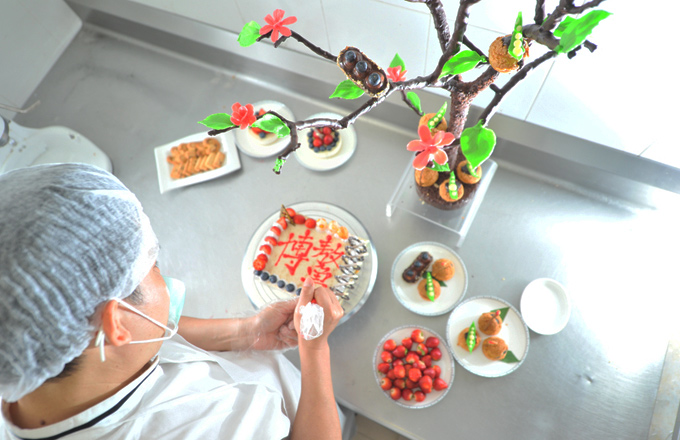Chinese automaker hoping for revival
The limousine used to pick Hollande up was a Hongqi, a vehicle model produced by FAW Car Co., Ltd., a subsidiary of the FAW Group, a leading Chinese automaker.
The Hongqi was first manufactured in 1958, making its public debut on October 1, 1959 at a ceremony in Beijing to mark the 10th anniversary of the founding of the People's Republic of China.
Since then, the car has often been used to transport foreign leaders during visits. The limousine taken by Hollande, a Hongqi L5, is an upgraded version of the vehicle.
Jia Xinguang, an independent auto industry analyst, said the vehicle's design and technology convey a sense of safety and dignity, as well as embody China's national image.
"The car is qualified as a top-level transportation vehicle for state guests," he said.
Production of the vehicles was suspended in the early 1980s, partly because of its relatively high fuel consumption.
In 1989, the FAW Group resumed production of the Hongqi and aimed to make it more fuel-efficient.
In 2008, the company kicked off a "Hongqi revival" program, aiming to make the vehicle more popular in the commercial sector, as well as among government departments looking to procure vehicles. Three years later, a C-class Hongqi featuring a variety of engine sizes rolled off the assembly lines.
Industry observers say the vehicle's recent re-emergence might encourage the government to purchase more Chinese cars.
China has been the world's largest auto market since 2009, with auto sales in 2012 rising to an all-time high of 19.3 million vehicles.
However, the market is currently dominated by foreign brands, which have established a foothold by setting up joint ventures with local automakers, churning out a large variety of cars mainly targeting the high-end market.
"In the short-term, it remains hard for Chinese cars to compete head-on with foreign rivals," said Sun Zhipeng, director of the Economic Institute at the Jilin Provincial Academy of Social Science.
Dong Yang, secretary-general of the China Association of Automobile Manufacturers, said government purchases, which account for no more than 10 percent of the country's total auto sales, will not give much of a boost to domestic car companies.
"However, their impact on boosting the domestic car market indirectly should not be underestimated," Dong said.























